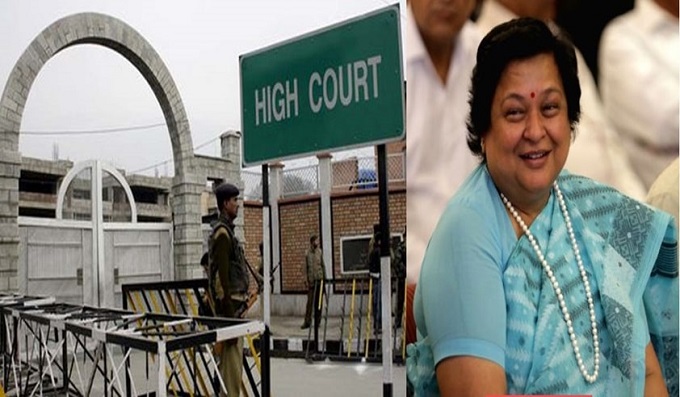The Jammu and Kashmir High Court has notified the scheme for internship and e-internship for engagement of law students as legal interns in the High Court.
The Chief Justice of the Jammu and Kashmir High Court, Justice Gita Mittal has issued the order giving details of the new Scheme for Internship and e-internships in the High Court of Jammu & Kashmir which has been formed so the law students could get to observe the practical working of courts and learn research work
According to the scheme Judge would be able to engage law students as unpaid interns, initially for a period of one month including during the course of summer and winter vacations. The students could be engaged for both regular and e-internships, and the Judges will have the discretion to extend the duration of their internships.
Talking about the concept of legal internships, the order has stated that law internships are established programs’ in courts, and are fixed term permissions granted to law students to attend and observe court proceedings, read files of cases, undertake legal research on points assigned to them and any other law related activity. While requests have been made by law students seeking permission to intern in the High Court of Jammu and Kashmir, there is no scheme in place for engagement of law Interns, unlike the one for Law Researchers.
The order has noted that the impending Covid 19 pandemic, minimisation of physical interaction, and the need for implementation of ‘work from home’ has resulted in a situation where law students are deprived of opportunities for internships in offices/ chambers of Judges, law offices, lawyers chambers etc. As these restrictions are denying students valuable experience of observing the practical working of courts and learning research work, there is a need to put in place a proper scheme in the High Court of Jammu and Kashmir for engagement of law students as law interns in the High Court of Jammu & Kashmir.
The Law Universities and Colleges may make recommendations for internship of a candidate. The candidate can apply directly to the Registrar General of the High Court of Jammu & Kashmir who will then circulate these applications to the Judges by seniority. Based on selection of the Judges the candidates will then be appointed accordingly.
The candidates can also submit their applications in the prescribed format to the private secretary of the judge with whom they wish to intern, who will place it before the judge concerned for acceptance or rejection.
The Law Interns will have to do research work, make case notes of cases for hearing before the concerned Judge, make presentations for the Judge for conferences etc. and any other work as assigned. The interns will be required to maintain absolute devotion to duty and a high standard of morals during the term of engagement and also maintain the highest standard of integrity commensurate with the responsibilities entrusted. The interns will also have to maintain utmost secrecy in respect of matters which come to their notice by virtue of the engagement and ensure that no information, documentary or other thing is disclosed parted or disseminated with others, in any manner. They will not disclose any fact which comes to their knowledge on account of such official attachment even after completion of the engagement unless disclosure is legally required in the discharge of the lawful duties.
After the internship law interns will be issued an experience certificate by the Registrar General with the approval of the Judge with whom attached.
The candidate must possess the following qualifications to be eligible for internship:
- The candidate should be pursuing LL.B course from a recognised Law College/ University established by law in India and eligible for enrolment as an Advocate with the Bar Council of India or State Bar Councils on the conclusion of the LL.B course.
- The candidate must have a good working knowledge of computers.
- The candidate must be a citizen of India.
The following will be the disqualifications for appointment as a Law Intern:
- The candidate must not be engaged or appointed anywhere on payment or honorarium basis.
- The candidate must not be involved in any criminal case whether pending or convicted for an offence involving moral turpitude.
- The candidate must not be involved in any disciplinary proceedings with the college or university in which studying or any other authority.
-India Legal Bureau


